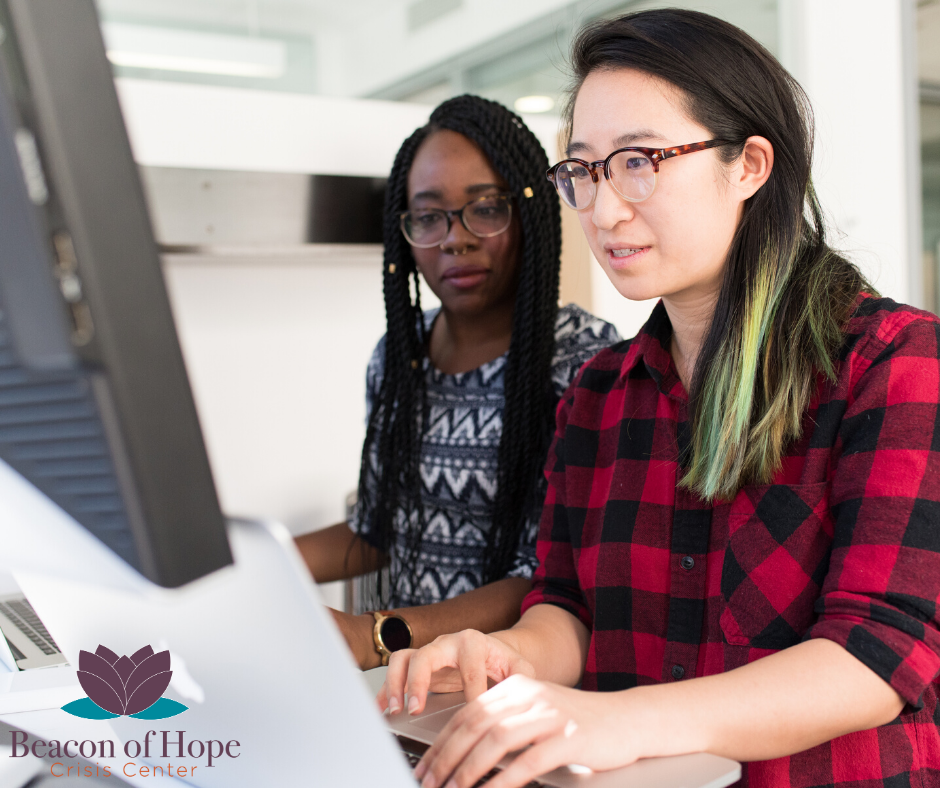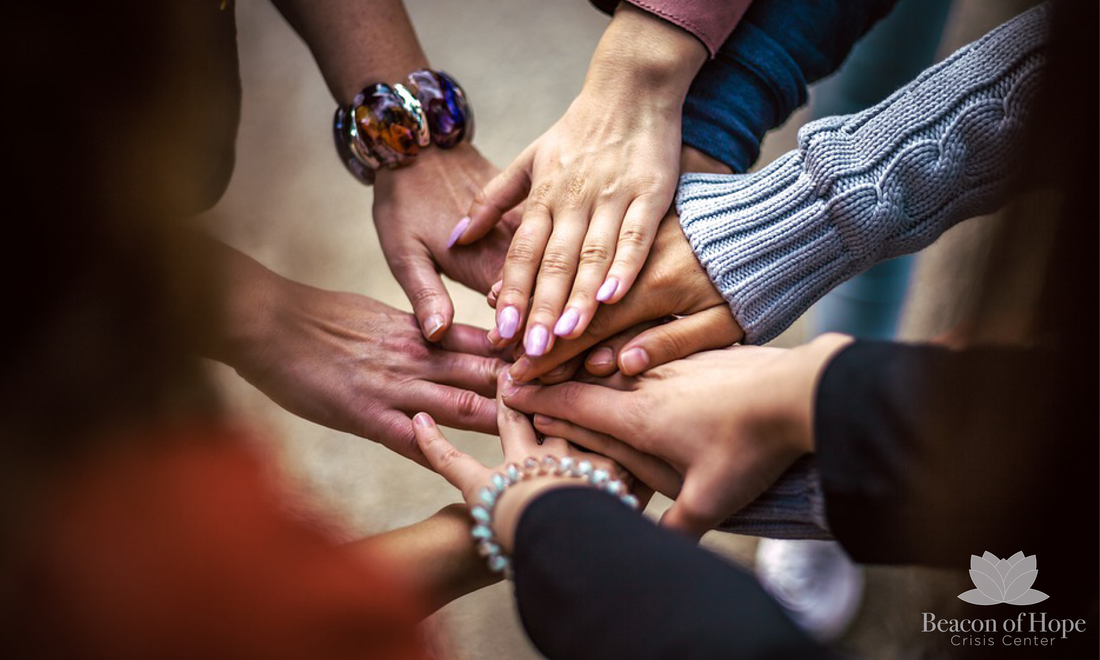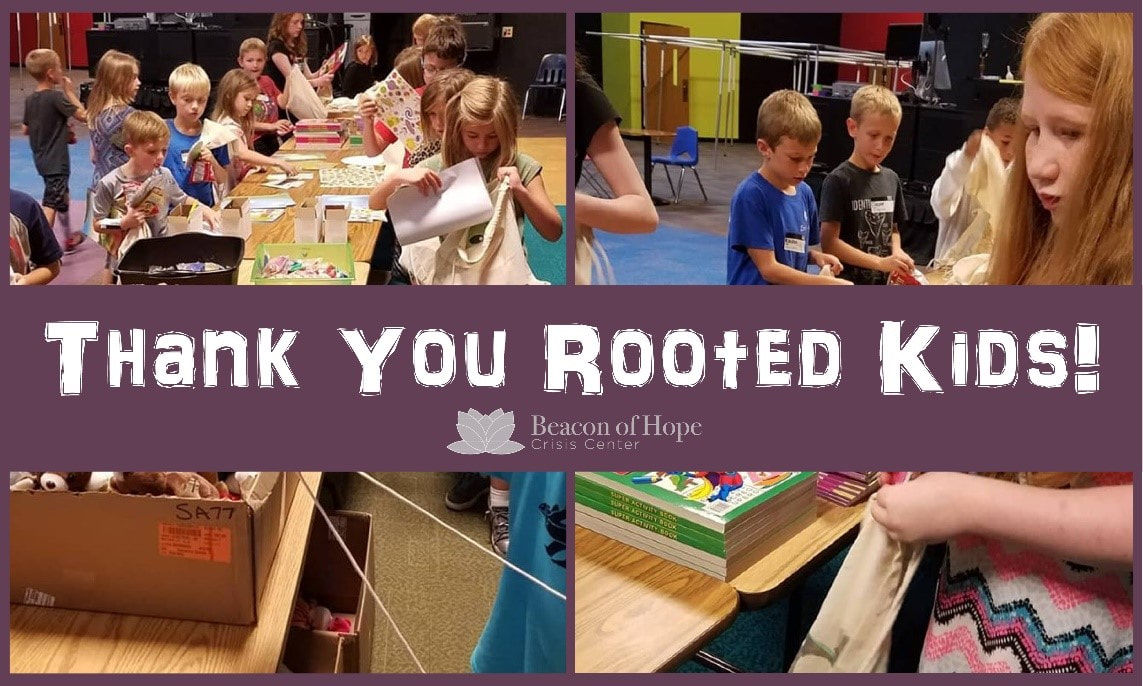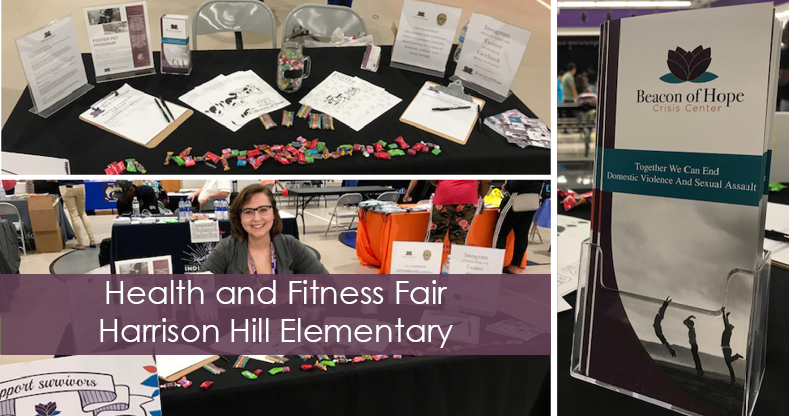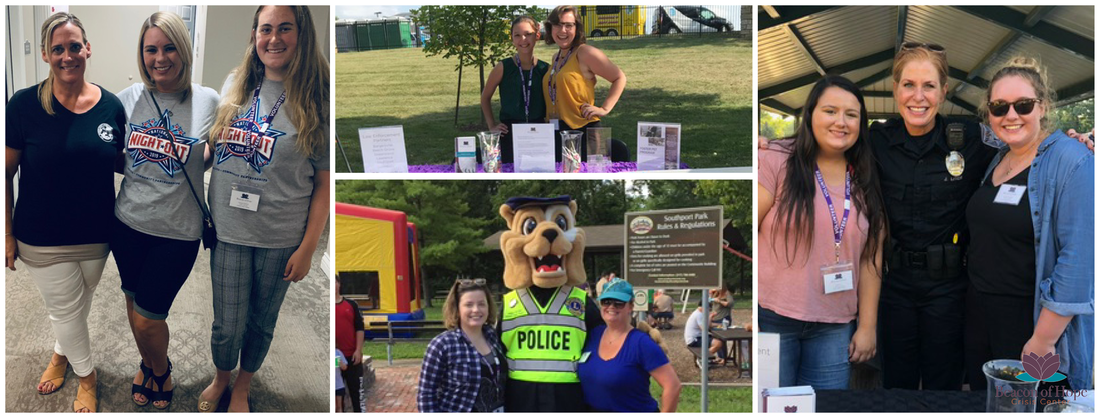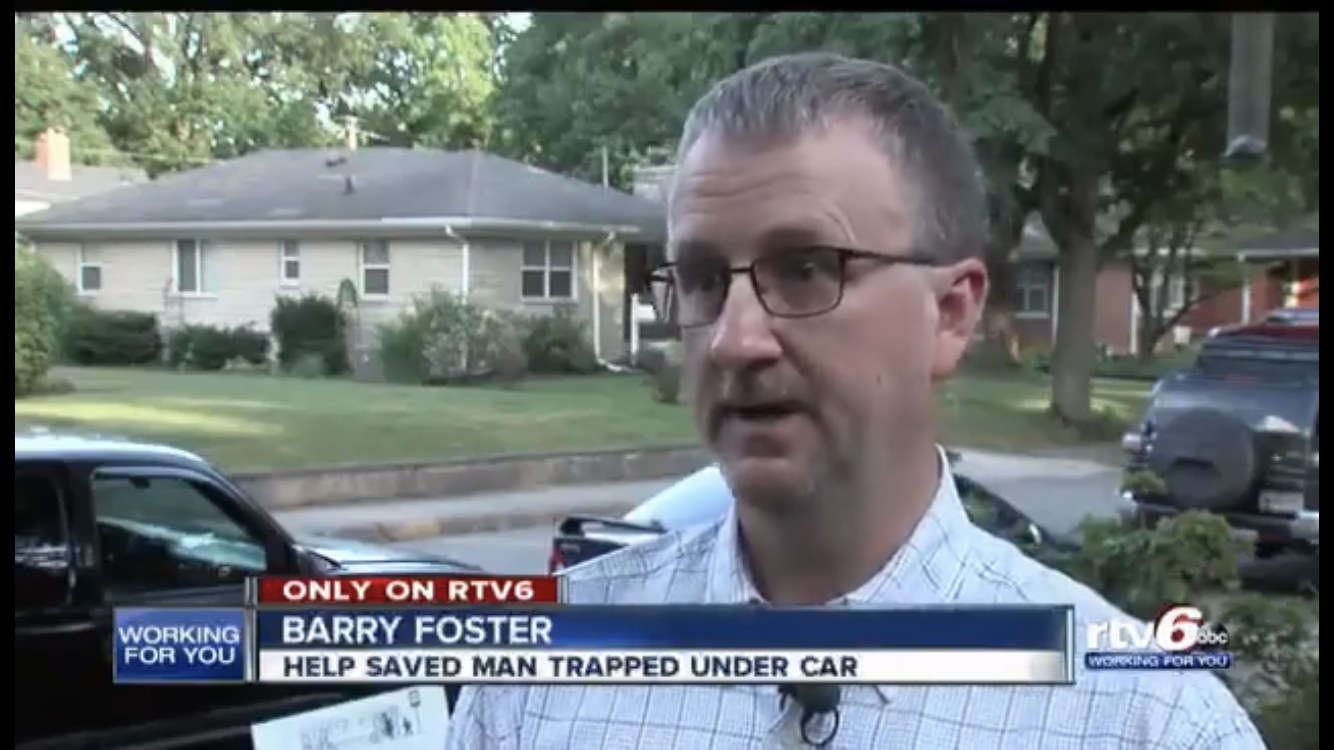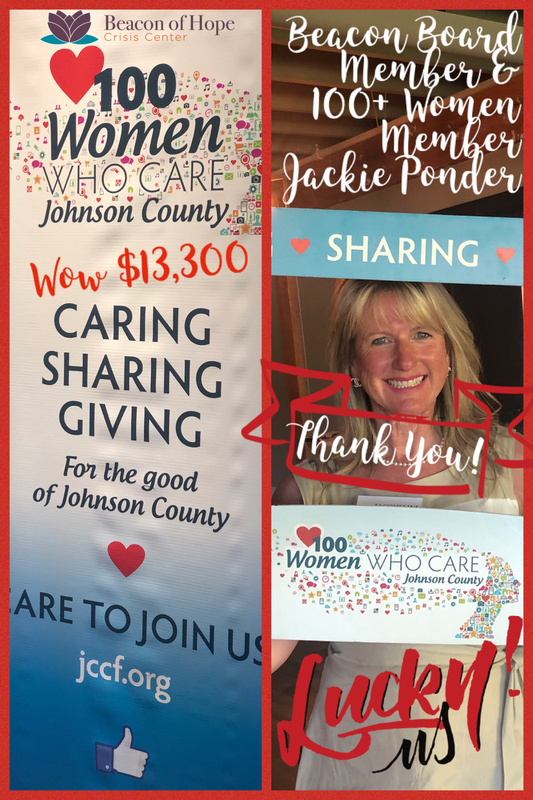|
By: Katie Schneider Domestic violence and sexual assault can cause lifelong negative impacts on a victim’s mental and physical health. Victims that are in marginalized communities face more barriers to accessing services than those who do not. A marginalized community is a group of people who for whatever reason are denied involvement in mainstream economic, political, cultural and social activities. [1] They tend to be underserved when it comes to receiving services for domestic violence and sexual assault. People who are living with trauma from domestic violence and sexual assault within these communities may be scared to turn to those that can help them (community resources or law enforcement).
Beacon of Hope Crisis Center breaks down barriers by offering services to everyone that walks through our door or calls our crisis line. We work alongside community partners to provide language services, refer clients to free legal assistance, safe housing, and much more. Training our advocates to be culturally aware and helping to make survivors feel as comfortable as possible in times of healing. Beacon of Hope Crisis Center also provides services at no cost to any of our clients. Free and completely confidential. This way there is no economic barrier to receiving services either. Our Economic Sustainability Program aims to empower survivors to become self-sufficient and financially independent after experiencing abuse. Domestic violence and sexual assault alike do not discriminate against race, gender, sexual orientation, religion, citizenship status or any other demographic. It can happen to anyone. No one deserves to live in the grip of domestic violence or sexual assault. Abuse is never the victim’s fault. Beacon of Hope Crisis Center serves ALL individuals seeking assistance after domestic violence or sexual assault victimization. Call our confidential and toll free crisis line to speak with an advocate. Crisis Line: (317) 731-6140. [1] https://yali.state.gov/five-ways-to-be-an-ally-to-marginalized-groups/ -groups/ By: Savannah Tipton History gives us reference to the work advocates are doing in 2019. There was a time, not too long ago, where victims of domestic violence had almost nothing available for support. Before the 1970s due to there being no shelters, self-identified advocates would let fleeing victims into their homes (1). Those brave advocates were the foundation for shelters nationwide. There was little research and bias clouded the minds of many professionals. In fact, many medical professionals didn’t recognize the health risks associated with domestic violence. According to Time Magazine, an article in the issue “Sept. 25, 1964 — highlights a mind-boggling study that concludes couples stay in abusive relationships because their fighting can “balance out each other’s mental quirks (2).”” Society’s view of domestic violence directly impacted a victim’s ability to find external support and break free from an abusive relationship.
Today, domestic violence agencies are open across the United States offering programs that empower survivors to build a life free from the grip of domestic violence. Medical professionals now recognize the danger of domestic violence and are learning more about risks associated with strangulation. The National Domestic Violence Hotline explains ““Strangulation” is defined as “It’s possible to experience strangulation and show no symptoms at first but die weeks later because of brain damage due to lack of oxygen and other internal injuries. For this reason, and for a safe way to document the abuse, we strongly recommend you consider seeing a doctor if your partner has strangled or choked you.” These referrals to see a doctor have saved countless lives. There is more work to do but we are well on our way to offering the support ALL survivors deserve when escaping domestic violence. Domestic Violence Milestones (3)
The work victim advocates do at Beacon of Hope Crisis Center is directly impacting the lives of families across Central Indiana including victims fleeing from out of state. If you or someone you know needs help dealing with domestic violence and/or sexual assault, call our confidential crisis line at 317-731-6140. If you are in an emergency, please call 911. By: Savannah Tipton We wanted to extend our gratitude to The Creek Rooted Kids for packing crisis bundles for families seeking services at Beacon of Hope Crisis Center. Crisis bundles include necessities and kid’s bundles are packed with toys, activities and other uplifting items for children. We believe it is important to provide our clients and their children with support and the message that we care.
At least one third of American children have witnessed violence between their parents. Many have witnessed multiple incidents. Exposing children to violence at young ages can stunt developmental growth, trigger symptoms of PTSD, and have many other severe mental and physical side effects. While no one deserves to experience abuse, one in four households are affected by domestic violence. If you notice red flags (link to red flags) that someone may be experiencing abuse, speak up. You can be an ally by listening and believing anyone who discloses domestic violence or sexual assault. Survivors face obstacles when seeking help, leaving and rebuilding their lives but you can make a difference. Listen, believe and refer victims to local service providers. Donate today to help free families from the grip of domestic violence. ALL donations made in October, Domestic Violence Awareness Month, will be DOUBLED by a generous donor. Learn more here (link to DVAM page). If you or someone you know needs help dealing with domestic violence and/or sexual assault, call our confidential crisis line at 317-731-6140. If you are an emergency, please call 911. By: Alaina Sermersheim The Health & Fitness Fair was held Tuesday, August 27th during Harrison Hill Elementary School's 2019 Back to School Night. Over 30 community organizations gathered in the cafeteria to connect with students, parents, staff, and teachers. I connected with staff and families about services at Beacon of Hope Crisis Center, volunteering and talked with families about our Foster Pet Program. Many individuals mentioned how unique the Foster Pet Program is and talk of the program spread quickly. Throughout the night, other families found us to request more information. We are always looking for loving families to join our program, to learn more click here.
Candy and coloring pages were a nice surprise for the kids stopping by our table. This kept them entertained as I spoke with their parents and teachers about healthy relationships, family violence and free services for victims. I also answered questions and provided resources to those looking to educate themselves further. This event was a great opportunity to gain visibility while connecting with families that may need our services. Thank you again to Harrison Hill Elementary School for inviting us to participate in this fantastic event! By: Cheyenne Taylor Being an advocate means that you not only have to walk the walk, but talk the talk. We are actively involved within the community to help raise awareness about domestic violence and sexual assault and the services we provide to those victims, at no cost. On Tuesday, August 6th, several of our advocates and Criminal Justice interns went to different communities to participate in National Night Out and show support for our law enforcement partners as well as connect with any victims and survivors present at those events.
Team members from Beacon of Hope Crisis Center attended National Night Out in Greenwood, Lawrence, Southport, Beech Grove, and Speedway. During these events, we spread the word about our agency, our services, and our connection with law enforcement partners. We passed out a lot of flyers to people interested in our Foster Pet Program, which you can learn more about here. We were also able to connect with several advocates and supporters who are helping to drive our mission and let victims know that they do not have to be alone. We believe them! We understand that a lot of interactions with officers or with us are during times of great distress, but this event gave us the opportunity to connect with the community in a fun way and establish a bond. The children in these communities had a blast from bouncy houses to ice cream. We were even chosen as a spot on the Bingo cards in Southport, which allowed us to meet a lot of friendly faces. This event really highlighted how working side by side with law enforcement in the community can make an impact on someone’s life. In fact, we know Echo, our therapy dog’s life was changed. He was rumored to be making kissy faces at the K9s in training. Overall, National Night Out was a great success! We are so grateful to be able to work closely with our law enforcement partners and the community. We work hand in hand to make sure that the people in our community are safe and able to live healthy and happy lives. If you or someone you know needs help dealing with domestic violence and/or sexual assault, call our confidential crisis line at 317-731-6140. If you are an emergency, please call 911. By: Sandra K. Ziebold Barry Foster, Chairs our Board of Directors, has a very busy Veterinary Clinic and spreads kindness and concern for others. Check out what Dr. Foster and his daughter Evelyn recently did. “They are heroes to us and our family...... - Nicole Griffin- RTV6 https://buff.ly/2YLBLfA
By: Sandra K. Ziebold
Representing our nonprofit was Beacon of Hope Crisis Center board member and 100+ Women Who Care member, Jackie Bowman Ponder (pictured here). Thank you 100+Women Who Care Johnson County, for your support. Notable Facts
Beacon of Hope Crisis Center served 131 new victims of domestic violence and sexual assault crimes during the month of July 2019. 45 of those victims were from Johnson County. 100+ Women Who Care Johnson County is a giving circle initiative created to support nonprofit organizations who help make our county a better place to live, work and play. Beacon of Hope Crisis Center has a Johnson County satellite office location in partnership with Franciscan Health. 100+ Women Who Care Johnson County is comprised of women who want to make a difference in Johnson County by making a financial commitment to support worthy nonprofits who serve Johnson County. They invite all like-minded women to join them on this mission. Beacon of Hope Crisis Center is working in partnership with Bargersville Veterinary Clinic located in Johnson County to expand our foster pet program. 100+ Women Who Care Johnson County grant recipients may not receive a benefit grant from the 100+ Women group again for two years. Eligibility renews every two years so, when an organization receives a grant, they cannot be nominated again until the two years has passed. They maintain a complete list for Members reference. By: Cheyenne Taylor  Millions of children live in households where domestic violence is present. These children are at risk of developing mental and physical impacts to their health from witnessing or experiencing abuse. Additionally, these children have a higher risk of having future issues when it comes to relationships. This includes the possibility of repeating the cycle of violence in their own lives. Domestic Violence and Children
If you or someone you know is in an abusive relationship and would like to speak to an advocate about your options, please call our confidential crisis line at 317-731-6140. By: Cheyenne Taylor Why is it that when we make our mental to-do list each day, we never add taking care of ourselves to that list? Thinking about yourself is something that is often painted in a negative light with terms like self-absorbed and self-centered coming to mind, but what about self-care? We tend to hold ourselves to higher standards than others. We make ourselves the exception to the golden rule, “treat others how you would like to be treated.” When we should really treat ourselves how we treat others. Think of how much happier you would be if you put as much energy into yourself as you put into your job or your friends and family.
Taking care of yourself should not be a second thought or something that is planned last. In the long run, you benefit so much more when you take care of yourself. You will feel and look better, and your attitude will improve. As a result, your social and professional life will also improve because you will have added something to combat the daily stressors you come into contact with. Self-care does not have to be a hassle, but it should become a part of your daily routine like taking a shower or brushing your teeth.
|
|
CAREER opportunities © 2025 Beacon of Hope Crisis Center Privacy Policy Accessibility Statement Board Portal Login |



